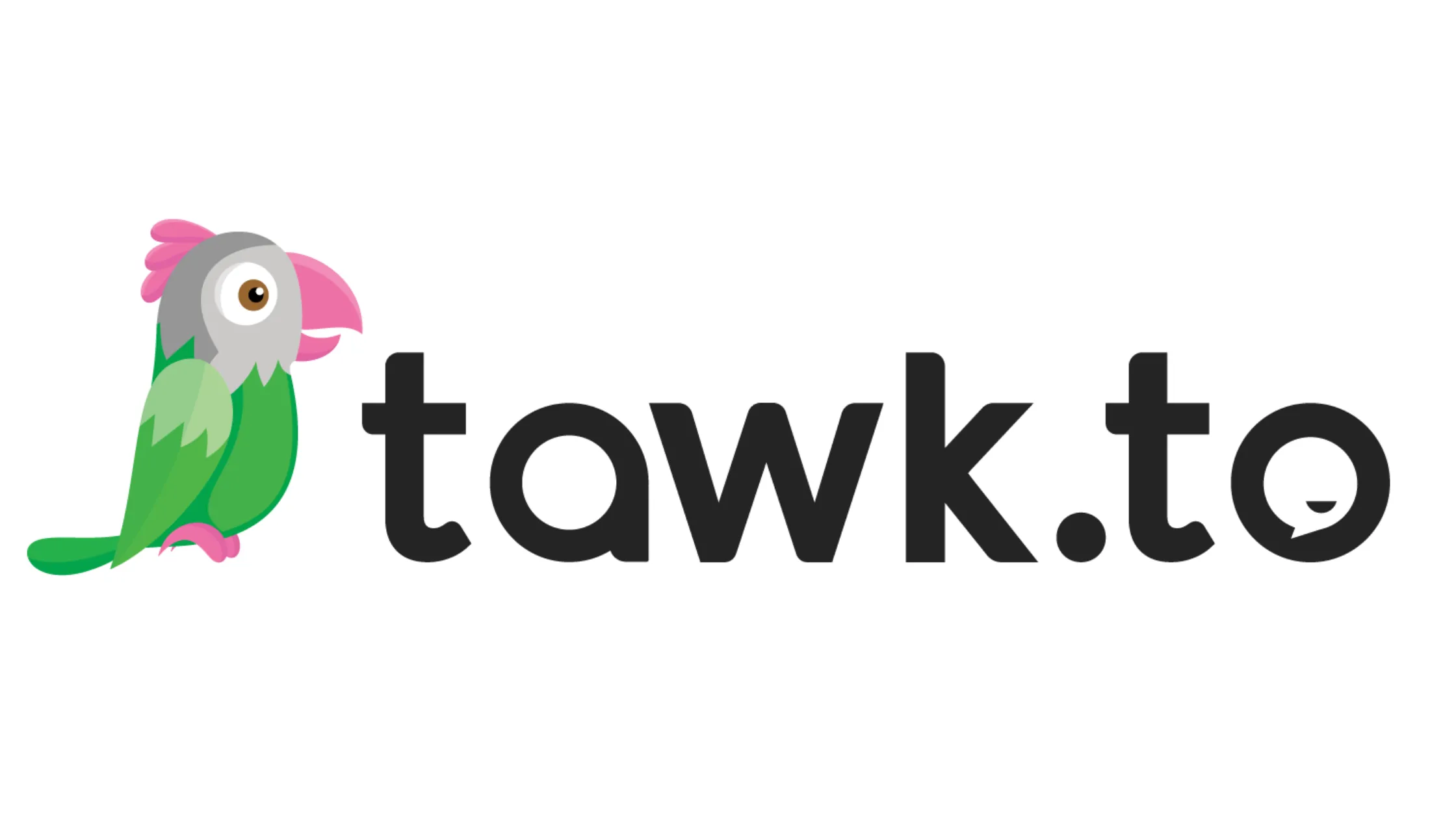
What is Customer Relationship Management (CRM)?
Learn why Customer Relationship Management (CRM) is essential for startups to scale, manage customer data, and improve efficiency from day one.
If you're a startup founder, you’ve probably heard the term "Customer Relationship Management" or CRM. It might sound like one of those corporate buzzwords, but trust me, it’s much more than that. When you’re in the early stages of building your startup, managing customer relationships can often be chaotic—especially if you’re relying on messy spreadsheets or digging through emails to track every conversation. A well-integrated CRM is a game changer, and I’ve seen firsthand how it can transform a startup’s ability to scale efficiently and build meaningful customer connections.
At Horizon Labs, we’ve worked with dozens of early-stage founders, helping them build and refine their tech stacks. Whether you're still experimenting with your product or have found product-market fit, a CRM can help you stay on top of customer data, streamline sales processes, and give you valuable insights that drive your business forward. So let’s dive into what exactly a CRM is and why it’s essential for startups like yours.
What is CRM?
A Simple Definition for Startups
A Customer Relationship Management system, or CRM, is essentially software designed to manage your company’s interactions with current and potential customers. It centralizes all your customer data—like emails, phone calls, meetings, and sales history—in one place, making it easier to track and manage relationships as they evolve.
For a startup, this means you no longer need to juggle customer information between Slack messages and email chains. Instead, everything is stored in one easily accessible platform, giving you a bird’s-eye view of where your leads stand in the sales funnel and what needs attention.
Key Features Every CRM Should Have
Here’s a quick rundown of the features you should look for in a CRM, especially if you're in the early stages of building your customer base:
- Contact Management: Store and organize customer data like phone numbers, emails, and addresses.
- Sales Pipeline: Visualize the stages of your sales process and see where each deal is.
- Automated Workflows: Set up tasks, reminders, or emails to keep deals moving forward.
- Analytics and Reporting: Track your performance through customizable reports and dashboards.
- Email Integration: Sync with your email system so all communications are recorded in one place.
Why Startups Should Care About CRM
Managing Chaos as You Grow
When you’re just starting out, managing a handful of customers through Gmail or Google Sheets might seem doable. But as you grow—whether it’s from 5 customers to 50, or 50 to 500—that same approach quickly becomes unmanageable. A CRM gives you the structure to scale. It keeps things organized and ensures that no customer falls through the cracks, whether you’re a one-person team or have a few co-founders helping you out.
The Startup Edge: Data-Driven Decisions
As startup founders, we’re constantly experimenting and iterating based on feedback. A good CRM will give you valuable data on customer interactions, buying behavior, and sales cycles. This insight helps you make smarter, data-driven decisions. For example, if your CRM shows that leads coming through a particular marketing channel close faster, you know where to double down your efforts. Plus, CRMs often offer features like lead scoring, helping you prioritize which leads are more likely to convert into paying customers.
Boosting Efficiency with Automation
As a founder, time is your most valuable asset. You’re wearing multiple hats—coding, managing a small team, maybe even handling customer support. A CRM allows you to automate repetitive tasks like sending follow-up emails or setting reminders for sales calls. That way, you can focus on what really matters: growing your business.
Choosing the Right CRM for Your Startup
Start Simple and Scale
When picking a CRM, you don’t need to go all-in on a complex, enterprise-level system. Start simple. Look for tools that fit the current size of your startup but can scale with you as you grow. There are a ton of affordable options that provide the core features you need—HubSpot, Pipedrive, and Zoho CRM are all great choices for early-stage companies.
Integration is Key
You’re probably already using other tools like Slack, Gmail, or marketing platforms. Ensure that whatever CRM you choose can integrate seamlessly with your existing software stack. At Horizon Labs, when we work with founders, we make sure their CRM is integrated into the broader tech ecosystem, making the workflow as smooth and efficient as possible.
How CRM Helps Build Stronger Relationships
Personalization at Scale
One of the greatest benefits of a CRM is the ability to personalize your communication, even as you scale. When customer data is organized in one place, it’s easier to craft personalized emails or offers based on where they are in the buyer’s journey. This makes customers feel valued and improves your chances of closing deals.
A Centralized Knowledge Hub
A CRM serves as the knowledge base for your entire team, especially when you're growing. Sales, marketing, and customer support can all access the same information, making cross-functional collaboration seamless. This unified approach ensures that everyone is on the same page, from your customer success rep to your lead engineer.
Common CRM Mistakes Startups Should Avoid
Overcomplicating the System
One of the biggest mistakes I’ve seen founders make is choosing a CRM that’s overly complex. It might have all the bells and whistles, but if it’s too hard for your team to use, it becomes a burden rather than a tool. When you’re in the early stages, you don’t need advanced features like AI-driven analytics or complex workflows. Focus on a CRM that is easy to adopt, and worry about scaling up when the time comes.
Not Training Your Team Properly
It’s not enough to just install the CRM and expect things to run smoothly. You need to invest time in training your team. A CRM is only as effective as the people using it. Make sure everyone, from sales to customer support, understands how to use the system and the value it brings. At Horizon Labs, we always encourage founders to set aside time to onboard their teams properly. We even provide ongoing support to ensure smooth adoption.
Failing to Keep the Data Clean
Another common pitfall is neglecting the cleanliness of your CRM data. Over time, duplicate records, outdated information, and inconsistent data formats can clutter your CRM, making it harder to track meaningful interactions. Assign someone to regularly clean up the system or set up automated processes to maintain data hygiene. Remember, garbage in, garbage out!
The Long-Term Benefits of a CRM for Startups
Building a Stronger Customer Base
Startups are all about growth, and a CRM is your secret weapon for scaling customer relationships. Over time, you’ll build a treasure trove of customer insights that can fuel everything from your marketing strategies to product development. A CRM helps you get closer to your customers, offering personalized experiences that foster loyalty. And loyal customers are the foundation of any successful startup.
Improved Investor Confidence
Investors love startups that are organized and data-driven. Having a CRM in place shows that you’re serious about tracking key metrics, understanding your customers, and scaling efficiently. It can also give you an edge when you’re pitching to investors or applying to accelerators like Y Combinator. A well-organized CRM with clear data on customer acquisition, sales cycles, and customer retention can be a powerful tool to showcase traction.
Future-Proofing Your Business
Think of a CRM as an investment in the future of your startup. While it might feel like an extra expense in the early days, it will pay off down the road. As your business grows, the CRM will evolve with you, adapting to new customers, markets, and sales strategies. Plus, with the rise of AI and machine learning, many CRMs now offer advanced features that can automate even more of your workflows—helping you stay competitive in an increasingly tech-driven landscape.
Why CRM Matters for Every Startup
As a founder, your primary goal is to build and grow a successful startup. And while product development and finding product-market fit are crucial, customer relationships are the lifeblood of your business. A CRM helps you manage those relationships in a scalable, organized way, ensuring that you can focus on growth without getting bogged down in administrative tasks.
At Horizon Labs, we understand the unique challenges that startups face. We’ve helped founders just like you integrate CRMs that streamline operations and set them up for success. Whether you're building your first MVP or scaling toward Series A, we’re here to provide the technical expertise and strategic insight you need to get there faster.
The Horizon Labs Difference: How We Help Founders Implement CRM Solutions
At Horizon Labs, we’ve helped startups across multiple industries integrate CRMs that fit their unique needs. Whether you’re in healthtech, e-commerce, or SaaS, we understand that no two startups are the same. We work closely with founders to not only implement the CRM but also ensure it integrates smoothly into your existing workflows. Our team has worked with companies like Kidsy and Yura Health, and we know firsthand how vital it is to have a system that grows with you.
If you’re ready to take the next step in building a scalable, organized customer relationship process, Horizon Labs can help. We’re more than just your development partner; we’re your strategic tech advisors. Contact us today at info@horizon-labs.co or schedule a call at https://www.horizon-labs.co/contact, and let’s talk about how we can build the right CRM solution for your startup—better, faster, and cheaper than the competition.
Frequently Asked Questions (FAQs) about Customer Relationship Management (CRM):
Q: How can a CRM help my startup improve customer retention?
A: A CRM helps you track and manage every customer interaction, which means you can stay on top of follow-ups, address customer needs proactively, and personalize communication. By having a full view of customer behavior, you can identify trends or issues early, allowing you to intervene before losing a customer. The system also lets you segment your customers, making it easier to create targeted retention strategies like loyalty programs or personalized offers.
Q: Is it worth investing in a CRM before reaching product-market fit?
A: Yes, implementing a CRM early helps you keep your customer data organized from the start, which is invaluable as you experiment with different markets or product iterations. It also helps you track customer feedback more efficiently, allowing you to iterate faster. By building a customer relationship infrastructure early on, you’ll be better prepared to scale when you do hit product-market fit.
Q: Can a CRM help with lead generation, or is it only for managing existing customers?
A: Many CRMs include features specifically designed for lead generation, like tracking lead sources, automating outreach, and even scoring leads based on their likelihood to convert. By integrating your CRM with your marketing tools, you can ensure that leads are nurtured from the moment they enter your pipeline, all the way through to conversion.
Q: How customizable are CRM systems for niche industries?
A: CRMs are highly customizable, especially modern solutions designed with startups in mind. Whether you're in healthtech, SaaS, or e-commerce, you can tailor your CRM with custom fields, workflows, and integrations to fit your industry-specific needs. Many CRMs also offer industry-specific templates or extensions, so you can easily adapt the system to your particular use case.
Q: What are the costs associated with setting up a CRM for a small startup?
A: The costs of setting up a CRM vary depending on the platform and the number of users you need. Many CRMs offer free tiers or low-cost plans ideal for small teams, usually starting around $10-$50 per user per month. As your company grows, you can upgrade to more robust packages with advanced features like automation, analytics, and integrations. While there are upfront costs, the long-term savings from improved customer management and increased efficiency often outweigh the investment.
Q: Do I need a CRM if I already have an email marketing tool and spreadsheets?
A: While email marketing tools and spreadsheets can manage small amounts of data, they quickly become inefficient as your startup grows. A CRM provides a more scalable and integrated solution, offering not just customer management but also workflow automation, sales pipeline visibility, and detailed reporting. It consolidates all your customer data into one place, reducing the risk of lost information and making it easier to make informed decisions.
Q: How can a CRM support remote teams?
A: CRMs are cloud-based, making them an excellent tool for remote teams. Everyone on your team can access the same customer information from anywhere, ensuring that communication stays consistent and tasks are tracked in real time. With features like task assignments, collaboration tools, and centralized data, a CRM ensures that remote teams can work just as efficiently as those in a traditional office setting.
Q: How can a CRM help with customer segmentation?
A: A CRM allows you to organize your customers into segments based on various criteria such as purchasing behavior, engagement level, or demographic information. This segmentation makes it easier to create targeted marketing campaigns, personalized outreach, and tailored product recommendations, all of which improve customer satisfaction and increase conversions. You can also use segmentation to prioritize high-value customers and allocate resources effectively.
Q: Can a CRM be integrated with other tools my startup is already using?
A: Yes, most modern CRMs offer integrations with a wide range of tools such as email platforms, marketing automation software, accounting systems, and customer support tools like Zendesk or Intercom. Integrating your CRM with existing software ensures that data flows seamlessly between different platforms, reducing manual data entry and creating a more unified view of your customer interactions.
Q: How does a CRM contribute to sales forecasting?
A: CRMs provide data-driven insights into your sales pipeline, allowing you to forecast future revenue more accurately. By tracking deal stages, sales cycles, and conversion rates, the CRM can generate reports that help you predict how many deals will close within a specific period. This data is invaluable for making strategic decisions, managing cash flow, and planning future growth.
Q: What role does a CRM play in customer support?
A: CRMs help improve customer support by keeping all customer information and previous interactions in one place. This ensures that support teams have complete context when addressing customer issues, leading to faster resolutions and more personalized service. Some CRMs also offer built-in ticketing systems or integrate with customer support tools, allowing you to track support queries and measure response times.
Q: How secure is the customer data stored in a CRM?
A: Security is a top priority for CRM providers, and most platforms follow industry-standard encryption protocols to ensure your data is protected. CRMs typically offer features like role-based access control, two-factor authentication, and audit logs to help you manage who can access sensitive customer information. Additionally, many CRMs comply with data protection regulations like GDPR, giving you peace of mind about the security of your customer data.
Q: Can a CRM help startups with limited sales teams?
A: Absolutely. For startups with small or limited sales teams, a CRM can act as a force multiplier by automating repetitive tasks like follow-up emails, reminders, and lead nurturing. This allows sales teams to focus on high-value activities like closing deals and building relationships. The CRM also provides clear visibility into the sales process, making it easier for a small team to manage multiple leads and stay organized.
Q: How long does it take to see benefits from implementing a CRM?
A: Startups often begin to see immediate benefits in terms of organization and workflow efficiency once a CRM is implemented. However, the full range of benefits—such as improved customer retention, increased sales, and better decision-making—typically become more noticeable over a few months as more data is entered into the system and teams adapt to the CRM processes. The key is consistency and proper training to ensure the CRM is being used to its full potential.
Q: What types of businesses benefit the most from using a CRM?
A: While CRMs are useful for businesses of all sizes, they are especially beneficial for startups and small businesses that need to manage growth, maintain relationships with a growing customer base, and optimize their sales processes. Industries that rely heavily on customer interactions, such as SaaS, healthtech, e-commerce, and marketplaces, stand to gain the most from implementing a CRM early on.
Whether you're validating an idea, scaling an existing product, or need senior engineering support—we're happy to talk through it. No pitch, just a conversation. From MVPs to AI integrations, we've shipped 60+ products since 2019. Tell us what you're building and we'll share how we can help.
Need Developers?
We help companies build ideas into apps their customers will love (without the engineering headaches).
















For Startups & Founders
We've been founders ourselves and know how valuable the right communities, tools, and network can be, especially when bootstrapped. Here are a few that we recommend.

Mistakes to Avoid When Building Your First Product
Learn the key mistakes founders make when building their first product—and how to avoid them for a faster, smoother launch.
Read more
The Rise of AI in Product Development: What Startups Need to Know
Learn how AI is transforming product development for startups. From MVPs to scaling, here’s what founders need to know in today’s AI-driven world.
Read more
No-Code vs. Custom Development: Which is Right for Your Startup?
Weighing no-code vs. custom development? Learn which is right for your startup depending on stage, budget, and product complexity.
Read more
What is Mixpanel?
Learn how Mixpanel helps startups track user behavior to improve products and accelerate growth with clear data-driven insights.
Read more
How Tawk.to Can Boost Your Startup’s Customer Support Game
Learn how Tawk.to can benefit startups by enhancing customer support and engagement. Perfect for early-stage founders!
Read more
Grow Your Startup With Anthropic's AI-Powered Tools
Discover how Anthropic's cutting-edge AI tools can accelerate your startup's success. Learn about their benefits and see why they can be trusted by startups.
Read more
What is Data-Driven VC?
Learn what a data-driven VC means and how such investors can benefit your startup’s growth and fundraising journey.
Read more
What is Blockchain?
A beginner-friendly guide on blockchain for startup founders, covering key concepts, benefits, challenges, and how to leverage it effectively.
Read more
What is Cybersecurity?
Learn cybersecurity basics tailored for startup founders. Understand key risks, best practices, and how to protect your startup from tech threats.
Read more
What is Seedcamp?
Learn what Seedcamp is, how its European seed fund and accelerator program work, and how founders can use its capital, mentorship, and network to scale their st
Read more
What is AngelList?
AngelList is a prime platform connecting startup founders to investors, talent, and resources to accelerate early-stage growth.
Read more
What is 500 Startups?
Learn what 500 Startups (now 500 Global) is, how its accelerator and seed fund work, and when founders should consider it—plus tips for early-stage startups.
Read more.png)